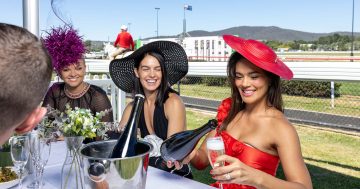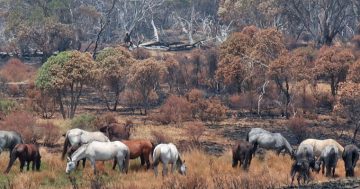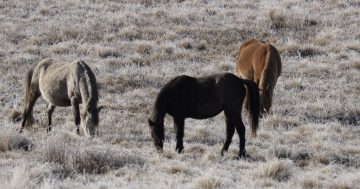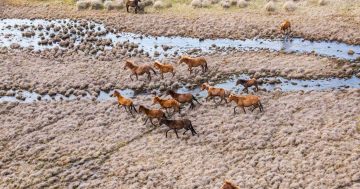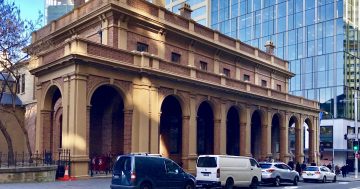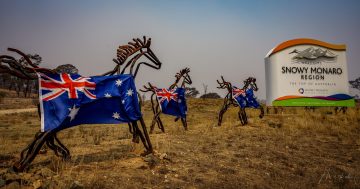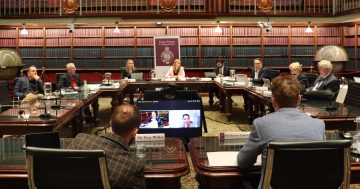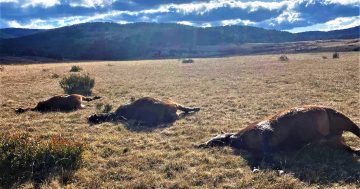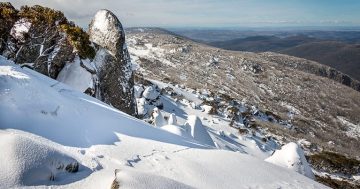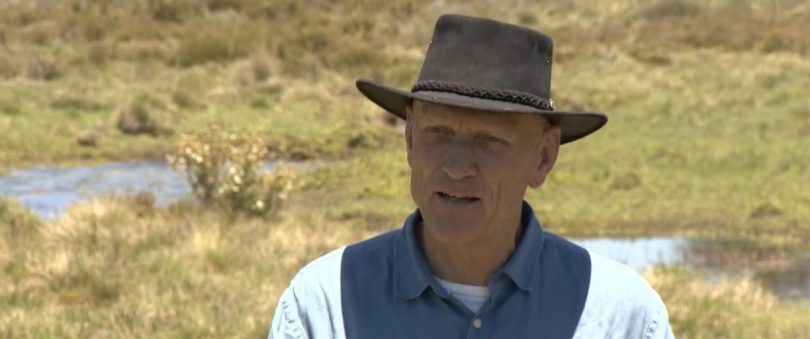
“To come to this place and see the damage that’s been wrought by these feral animals has broken my heart, and we need to reduce these numbers urgently,” says Peter Garrett about Kosciuszko National Park. Photo: Reclaim Kosci.
Former Federal politician, Australian rock legend and passionate Kosciuszko National Park supporter Peter Garrett has called for urgent steps to cut feral horse numbers in the park, describing their current numbers as a ‘plague’.
Following an aerial and ground inspection of the northern end of the park, accompanied by Invasive Species Council CEO and Reclaim Kosci spokesperson Andrew Cox, Mr Garrett declared that an important part of our national heritage is being wrecked by the feral invasion across a unique Alpine region.
He also called for the Australian public to get onboard with a campaign to have the damaging NSW feral horse protection law, that was enacted more than two years ago, repealed.
“I’ve spent many years in different capacities – whether as a muso, a pollie or as an environmental activist – walking around and seeing many parts of the most beautiful country on earth for me,” said Mr Garrett.
“And yet to come to this place and see the damage that’s been wrought by these feral animals has broken my heart, and we need to reduce these numbers urgently.”
Mr Garrett’s public plea is the latest in a growing chorus of calls for the NSW Government to take decisive action and repeal its horse protection act to preserve threatened native animal and plant species unique to Kosciuszko National Park.
Mr Cox warmly welcomed the latest intervention by one of Australia’s best-known musicians and environmental activists as further evidence the NSW Government should act quickly to reverse ongoing damage in the national park and begin the process of restoration.
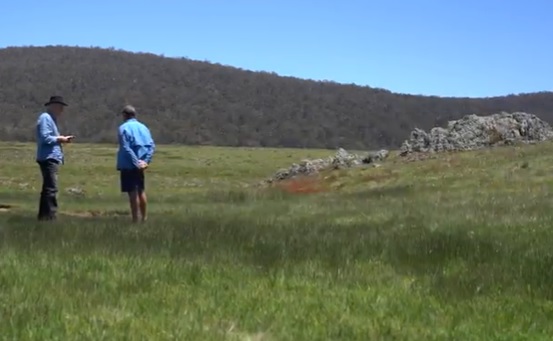
Peter Garrett was taken on an aerial and ground inspection of the northern end of Kosciuszko National Park, accompanied by Invasive Species Council Indigenous ambassador Richard Swain. Photo: Reclaim Kosci.
“As a former Federal Environment Minister, Mr Garrett added significant weight to calls for NSW to end the resumption of grazing by stealth in the park by an estimated 20,000 feral horses at the last official count,” said Mr Cox.
“Donald Trump-style calls for a recount currently being conducted at significant extra cost to NSW taxpayers could not disguise the fact that every day more than 1000 feral horses trampled Currango Plain in the headwaters of the Murrumbidgee River.”
Mr Cox said the former Currango and Coolamine stations would never have run that many horses as grazing enterprises so why is it acceptable in a national park where grazing by farmers was banned after an official inquiry more than 50 years ago?
Mr Garrett said he could see clearly from the air the damage that is being done to the streams and waterways in the crucial catchment.
“Native vegetation is being trashed and important native species are under threat simply because there are so many of these wild horses here in Kosciuszko National Park,” he said.
“It’s really important to get all of these horses reduced in number in a humane way, and make sure the environment of Kosciuszko National Park is maintained and restored.”
Mr Garrett also urged park enthusiasts and supporters to sign the Reclaim Kosci petition to get the controversial horse protection law debated and then repealed in NSW Parliament.
He said Kosciuszko National Park provided a unique environment for family recreation and enjoyment by people in different stages of their lives.
“You might be charging down the hills on your skis when you are a teenager or a young adult,” he said. “You might bring your kids out and go camping when you are a family person. You might go bushwalking when you want a bit of contemplation and quiet, and what an incredible place for all those things to happen.
“And to know we’ve now got a really large number of feral horses in the park essentially trashing and destroying it. I saw it with my own eyes – there’s no question about it.”
Mr Cox welcomed Mr Garrett’s sounding of the alarm on the state of Kosciuszko National Park and said it should be a stark warning on the need for immediate action to halt the damage and begin the urgent work of park restoration.
He also called for more public figures to follow Mr Garrett’s leadership on the environment to speak out and bring an end to feral horse vandalism in the national park.
Original Article published by Edwina Mason on About Regional.











